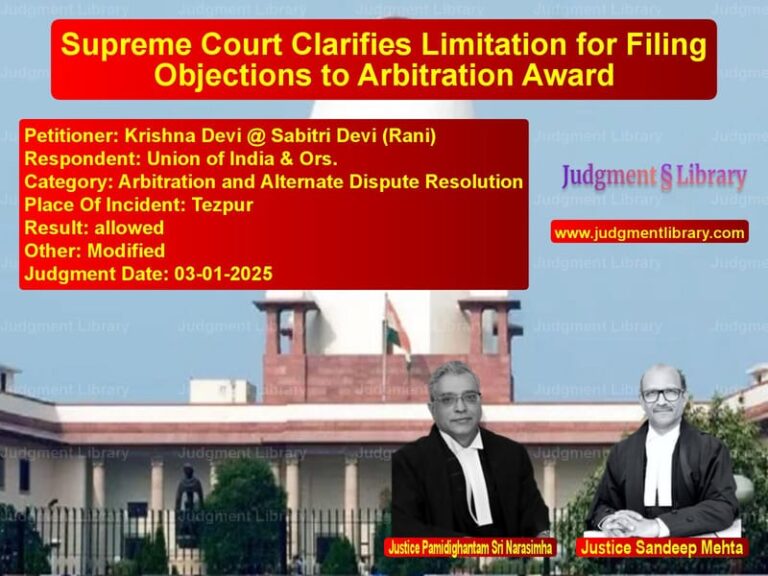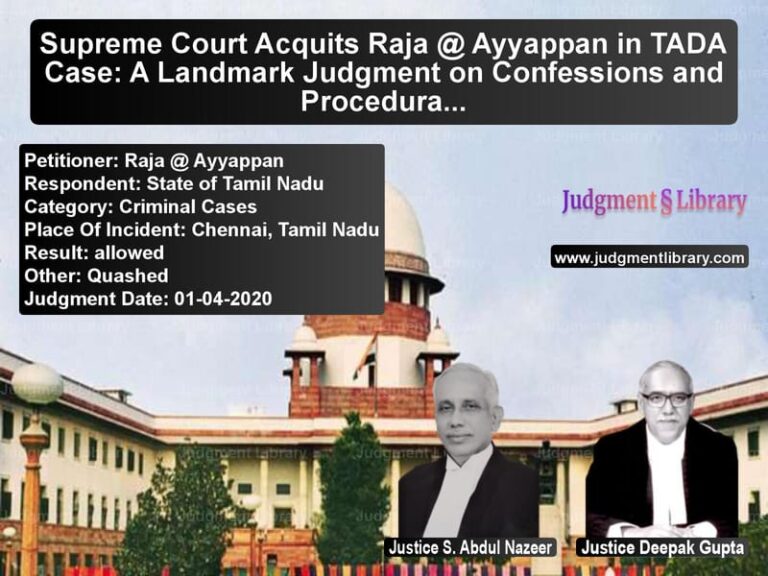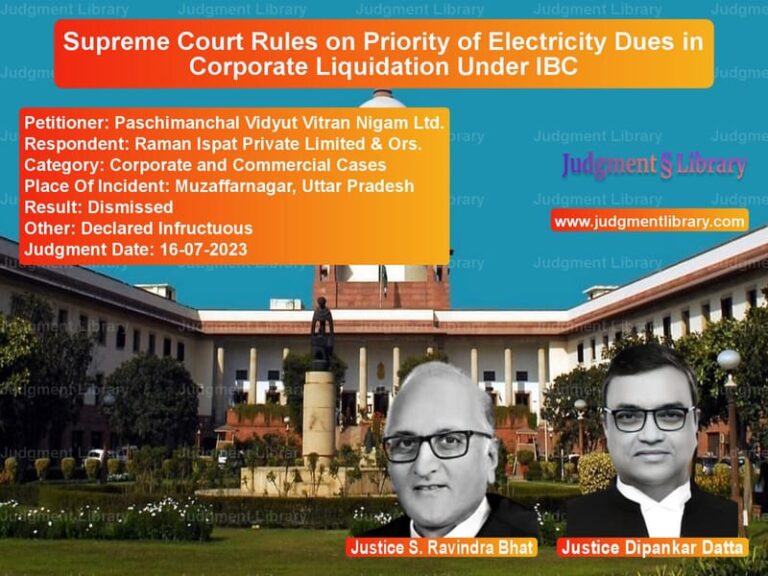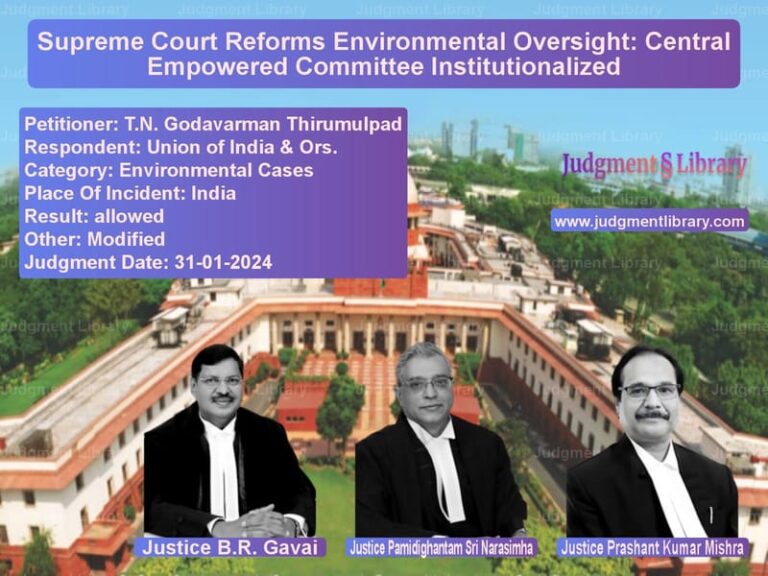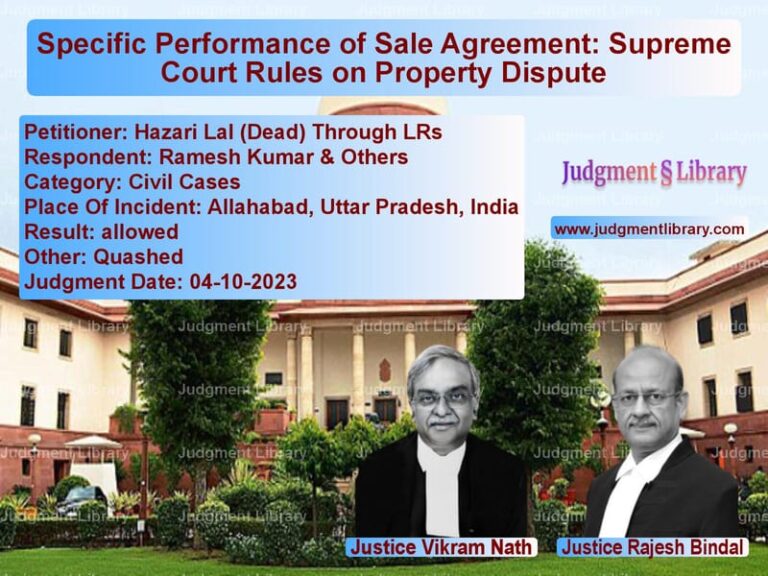Advocate’s Fee and Legal Ethics: Supreme Court Strikes Down Unfair Practices
The Supreme Court of India, in the case of B. Sunitha v. The State of Telangana & Anr., examined the ethical boundaries of legal fees charged by advocates. The case revolved around a cheque bounce under Section 138 of the Negotiable Instruments Act, 1881, where the appellant challenged the validity of the demand, arguing that it was based on an unenforceable contract.
Case Background
The appellant, B. Sunitha, had engaged an advocate to represent her in a motor accident compensation case. She had already paid Rs. 10 lakhs as legal fees. However, the advocate allegedly coerced her into signing a cheque for an additional Rs. 3 lakhs, claiming a fee of 16% of the compensation amount. When the cheque was dishonored, the advocate filed a complaint under Section 138. The appellant argued that the demand was unethical, in violation of professional ethics, and against public policy.
Arguments of the Parties
Petitioner’s Argument:
“The cheque was taken from the appellant by way of abuse of position and the transaction was void under Section 23 of the Indian Contract Act, 1872. The fee demanded was unethical and contrary to legal profession standards. The advocate cannot claim a fee based on a percentage of compensation.”
Respondent’s Argument:
“The appellant had agreed to pay the professional fee and availed the respondent’s services. Having already paid Rs. 10 lakhs, the additional amount was justified based on services rendered, including hiring senior advocates at higher courts.”
Supreme Court’s Observations
The Supreme Court, through a bench comprising Adarsh Kumar Goel and Uday Umesh Lalit, examined the ethical obligations of legal practitioners. The Court noted:
“Charging a percentage of decretal amount by an advocate is hit by Section 23 of the Contract Act being against professional ethics and public policy. The cheque issued by the appellant could not be treated as being in discharge of any liability.”
The Court referenced multiple precedents, including:
- Mr. G., A Senior Advocate of the Supreme Court (1955) – where contingency-based legal fees were deemed misconduct.
- V.C. Rangadurai v. D. Gopalan (1979) – which emphasized the fiduciary duty of lawyers.
- Re: K.L. Gauba (1954) – stating that a fee dependent on case outcome undermines the dignity of the profession.
Final Judgment
The Court held that demanding a fee based on litigation outcomes violates professional ethics and constitutes an abuse of fiduciary relationships. It quashed the criminal proceedings against the appellant, stating:
“In view of the above, the claim of the respondent advocate being against public policy and being an act of professional misconduct, proceedings in the complaint filed by him have to be held to be an abuse of the process of law and have to be quashed.”
The Court also highlighted the need for reform in legal fee regulations and urged the Law Commission to re-examine the regulatory mechanisms of the legal profession to prevent unethical fee demands and exploitation.
Don’t miss out on the full details! Download the complete judgment in PDF format below and gain valuable insights instantly!
Download Judgment: B. Sunitha vs The State of Telanga Supreme Court of India Judgment Dated 05-12-2017.pdf
Direct Downlaod Judgment: Direct downlaod this Judgment
See all petitions in Fraud and Forgery
See all petitions in Legal Malpractice
See all petitions in Contempt Of Court cases
See all petitions in Judgment by Adarsh Kumar Goel
See all petitions in Judgment by Uday Umesh Lalit
See all petitions in allowed
See all petitions in Quashed
See all petitions in supreme court of India judgments December 2017
See all petitions in 2017 judgments
See all posts in Criminal Cases Category
See all allowed petitions in Criminal Cases Category
See all Dismissed petitions in Criminal Cases Category
See all partially allowed petitions in Criminal Cases Category


